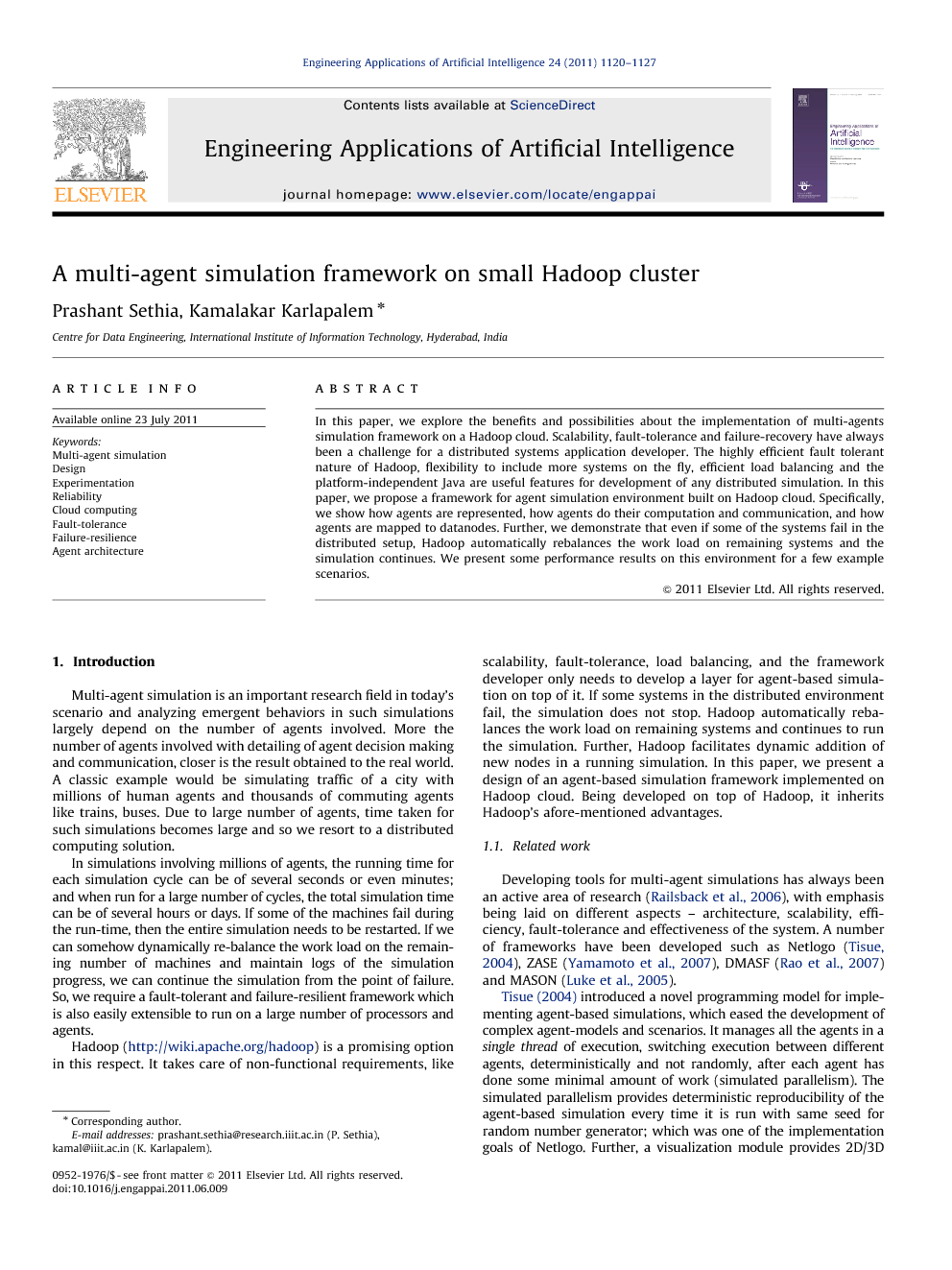ترجمه فارسی عنوان مقاله
چارچوب شبیه سازی چند عامله در خوشه های کوچک
عنوان انگلیسی
A multi-agent simulation framework on small Hadoop cluster
| کد مقاله | سال انتشار | تعداد صفحات مقاله انگلیسی |
|---|---|---|
| 11434 | 2011 | 8 صفحه PDF |
منبع

Publisher : Elsevier - Science Direct (الزویر - ساینس دایرکت)
Journal : Engineering Applications of Artificial Intelligence, , Volume 24, Issue 7, October 2011, Pages 1120-1127
ترجمه کلمات کلیدی
چند عامل شبیه سازی -
طراحی -
آزمایش -
قابلیت اطمینان -
ابر رایانه -
تحمل خطا -
شکست یا انعطاف پذیری -
عامل معماری -
کلمات کلیدی انگلیسی
Multi-agent simulation,
Design,
Experimentation,
Reliability,
Cloud computing,
Fault-tolerance,
Failure-resilience,
Agent architecture,

